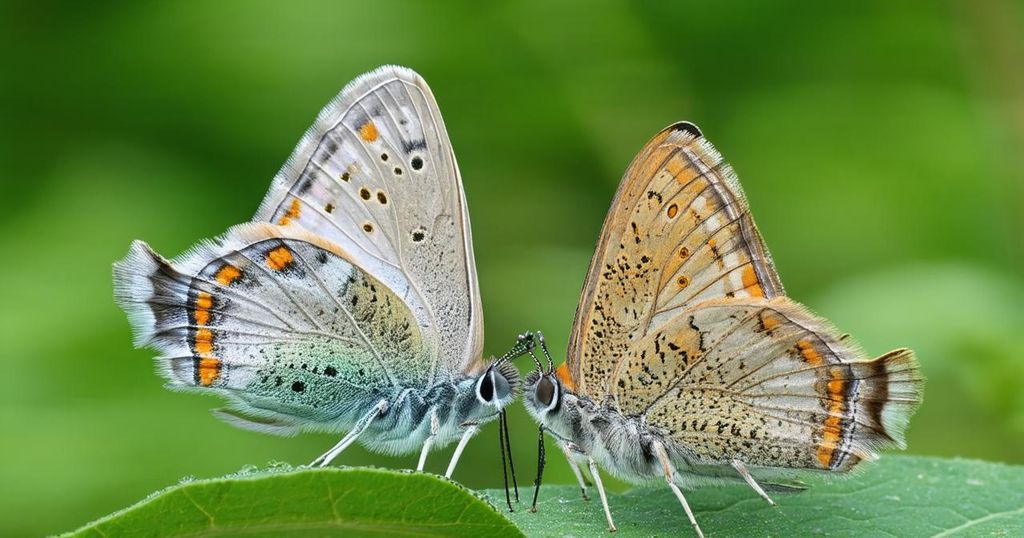Climate change is severely impacting butterfly populations in Greece and worldwide, with rising temperatures leading to reduced food availability and shorter flowering periods. Research by the University of Ioannina indicates that these changes may result in smaller butterfly sizes and forced migrations. Wildfires further exacerbate the loss of habitats crucial for their survival, intensifying the need for urgent conservation efforts.
In a controlled environment at a zoo located near Athens, vibrant butterflies indulge in sweet juice from orange slices, sheltered from the detrimental effects of climate change that threaten their survival in Greece and around the globe. The rising temperatures have increasingly posed challenges for the nation, which is home to approximately 237 butterfly species. As the climate shifts, food availability diminishes, flowering seasons shorten, and there are indications that butterfly sizes are decreasing. This phenomenon is not unique to Greece; countries like Mexico and Britain are also witnessing significant declines in certain butterfly populations. Konstantinos Anagnostellis, an agronomist involved in a project named MEIOSIS—which translates to “shrinking” in Greek—highlights the pressing issue: “Climate change is impacting butterflies … that rely on temperature to perform essential activities such as mating, reproduction, growth, and feeding.” This research project, undertaken by the University of Ioannina, seeks to analyze changes in body weight across over 50,000 butterfly specimens over the past century, thereby illustrating the correlation between climate change and diminishing body size in these creatures. Warmer temperatures compel butterflies to relocate to cooler habitats, which often provide limited dietary resources. Moreover, the intensified occurrences of wildfires in Greece further exacerbate the situation, as these fires destroy grassland ecosystems essential for food. Anagnostellis elaborates on the consequences of these environmental changes, stating, “If these plants are burned, there is a risk of direct mortality for the larvae, and we may not have adult butterflies to reproduce, forcing them to migrate to other areas.”
The impact of climate change on butterfly populations is a growing concern, particularly in regions such as Greece where biodiversity is rich, yet under threat. Butterflies are recognized as vital indicators of ecosystem health and their decline can foreshadow wider environmental changes. Research teams, such as the one led by Konstantinos Anagnostellis at the University of Ioannina, are actively engaged in studying these phenomena through extensive data collection. Their findings aim to provide insights into how climate alterations specifically affect species size and reproductive patterns, which are critical for sustaining butterfly populations.
In summary, the urgent issue of climate change poses serious threats to butterfly populations in Greece and globally. Rising temperatures, food scarcity, and habitat destruction due to wildfires are severely impacting these delicate creatures. Initiatives such as the MEIOSIS project aim to document these effects and foster understanding, which is vital for developing conservation strategies to protect these species and their ecosystems for future generations.
Original Source: kfgo.com






